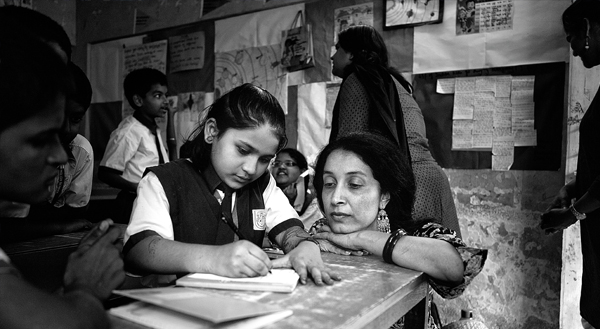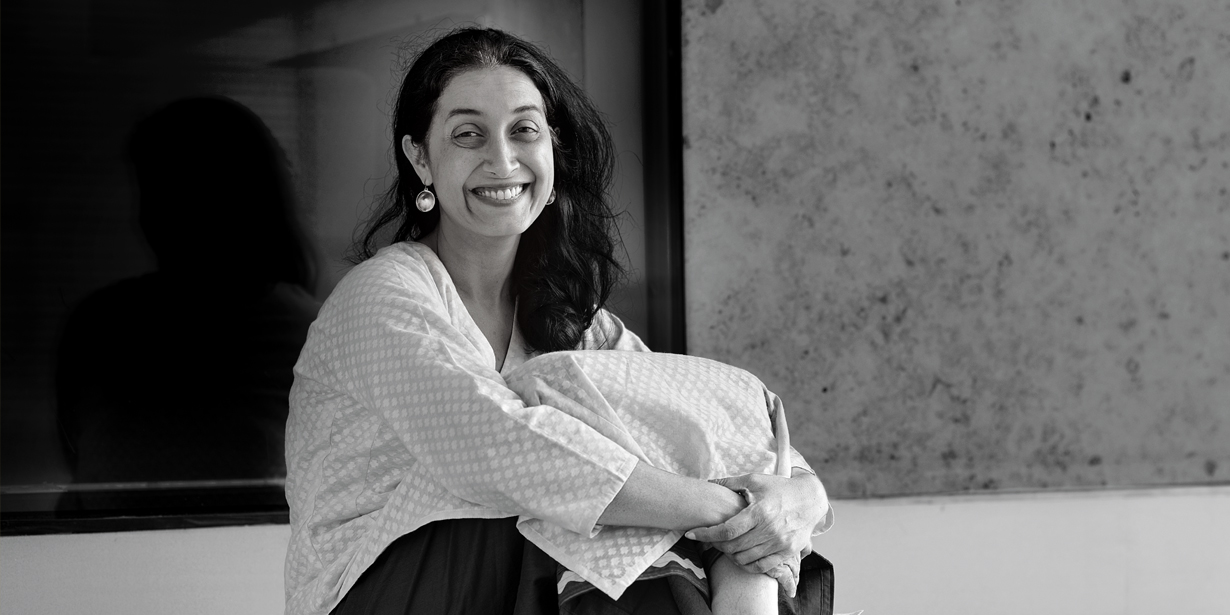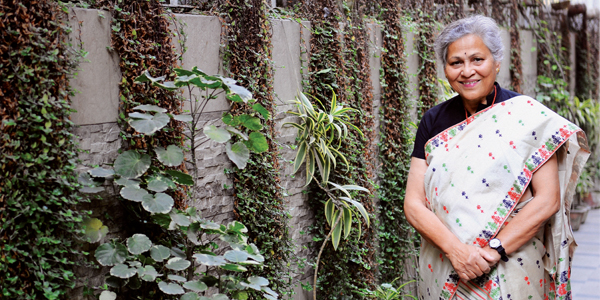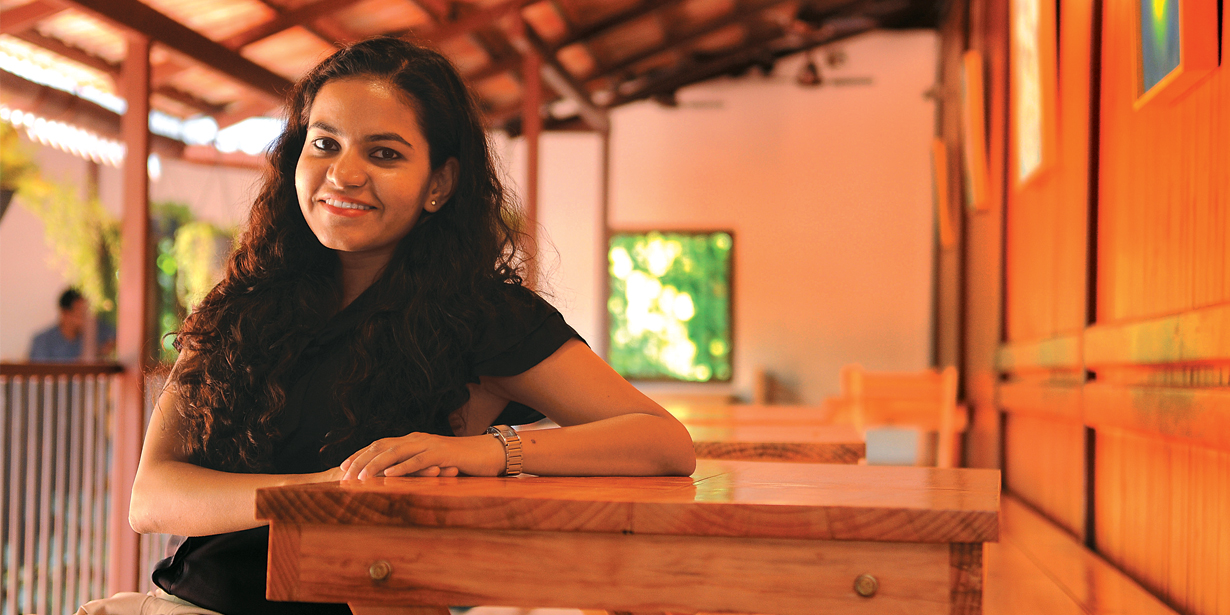Meet the force who has educated over 50,000 kids in a revolutionary manner – Shaheen Mistri
From Akanksha Foundation to Teach for India, Shaheen Mistri has given underprivileged kids a chance to turn their lives around through education.
It was a 21-year-old, bright-eyed young man called Lateef at Akanksha Foundation who taught Shaheen Mistri the art of giving. The 44-year-old Mistri pretty much adhered to the age-old adage that teachers should never have favourites, barring two or three kids who she couldn’t help but love a little more. One of them was Lateef, who joined Akanksha at the age of 12 and energised the institute with his verve and musical talent. “He was one of those fantastic kids who could walk into a classroom and make everything better,” says Mistri. But that changed one rain-soaked day. Mistri had to turn around from a trip out of the city to look after Lateef, who she had just heard was severely ill. Despite strict instructions from his own ill grandfather to use the last bit of family savings of Rs.14,000 to get himself admitted to a private nursing home, Lateef saved that money for his granddad and went to a government hospital. Before Mistri could reach the spot, he had passed away.
 This incident shook up Mistri and taught her the power to give, the power to lead by example and the privilege of learning from the people around her, she says. But the idea of giving back to society did not start there. That feeling had been dormant deep inside, from a time when she was a little girl growing up in a home filled with images of Mahatma Gandhi. She liked the ideas Gandhi spoke about — ‘In a gentle way, you can shake the world’. At every house she lived in — across 10 countries, including Greece, Lebanon, America and Indonesia — there were black-and-white portraits of Gandhi on the walls and all around the fireplace. Their dinner time conversations often revolved around the ideas of the great man, social issues and revolution. But her privileged background and an investment banker father had not lulled her into a cosy existence — she cared deeply for children’s issues.
This incident shook up Mistri and taught her the power to give, the power to lead by example and the privilege of learning from the people around her, she says. But the idea of giving back to society did not start there. That feeling had been dormant deep inside, from a time when she was a little girl growing up in a home filled with images of Mahatma Gandhi. She liked the ideas Gandhi spoke about — ‘In a gentle way, you can shake the world’. At every house she lived in — across 10 countries, including Greece, Lebanon, America and Indonesia — there were black-and-white portraits of Gandhi on the walls and all around the fireplace. Their dinner time conversations often revolved around the ideas of the great man, social issues and revolution. But her privileged background and an investment banker father had not lulled her into a cosy existence — she cared deeply for children’s issues.
One step at a time
It seemed to be destiny’s call when Mistri moved to India for her higher studies after attending boarding school in Connecticut. She graduated with a BA degree in Sociology from St Xavier’s College, Mumbai, and completed her Masters in Education from the University of Manchester. Before launching Akanksha Foundation, Mistri’s interest in children’s education led her to volunteer as a teacher at diverse organisations in Mumbai, such as the Happy Home & School for the Blind and the EAR School for the Hearing Impaired. The inspiration for her venture awaited Mistri at her grandmother’s house, where she stayed for a while. This home exuded an aura of radical openness: her grandmother’s paintings of the city and its people adorned the walls; there were very few walls separating the rooms, which visitors could easily walk into and out; sunlight always streamed in through the windows. Her grandmother was a powerful individual who lived on her own terms and started learning painting only after she turned 70 years old, she says. Mistri adds that her grandmum was the kind of woman who believed in constant mould-breaking for personal transformation and artistic expression. Evidently, it was this genetic streak that inspired Mistri to emerge from her secure life and walk the slums of Mumbai to see low-income families and children roaming the streets. “I realised that if I could break the patterns of my life and bring in change, I could also help these poor kids do the same and help bring in new patterns that would be best for their growth and evolution,” she says. Two years later, in 1991, she formally started the Akanksha Foundation, which pioneered the idea of using vacant classrooms in big schools, colleges and offices as learning centres for underprivileged children. Her family was supportive throughout, barring the concern about hygiene issues, which she promised to take care of.
The path to starting Akanksha was rocky, with the main obstacles being raising funds and getting people to work for the cause. “Inspiring people to sign up with the foundation as volunteers was tough. The registration processes to establish Akanksha as a formal NGO was the second challenge. The government was wary of NGO start-ups due to many cases of fraud and unethical treatment. A law passed in the early ’90s, stating that a non-profit had to be in place for three years and have a clean track record in order to get tax exemption for people donating money, made raising funds difficult. Family friends connected me to Citibank, which chipped in. Soon, people joined us and funds poured in for the cause,” she says. Currently, Akanksha reaches out to 5,000 children with eight centers and 16 schools located across Mumbai and Pune. The foundation now gets funding of almost over Rs.10 crore annually.

The year 2007 was when Teach for India started its operations in the country. Mistri realised that it was important for change to happen at a large scale so that many people come on board, helping in educating for the underprivileged. The idea clicked when she met Wendy Kopp, CEO and founder of Teach for America, to discuss if it was a viable decision to start something similar back home. Soon, TFI was up and rolling in the country. “Slowly, as I started reaching out to these kids, I realised how interconnected the whole world was. The world seemed more fluid than ever,” she says. And this idea was also inspired by Mistri’s mentor, Jayesh Patel or Jayeshbhai, co-founder and director of Manav Sadhna, an NGO based out of the Gandhi Ashram in Ahmedabad, India. Through simple things, Jayeshbhai taught her the values of love and compassion. Currently educating 30,000 children in seven cities, TFI aims to expand in various parts of the country. A part of the Teach For All global movement, TFI recruits qualified college students and professionals to impart education to the less fortunate. The organisation presently has a massive team of around 1,100 fellows and 200 staff members with over 1,000 alumni.
Launching and running the TFI programme was not an easy task for Mistri, but she considers herself lucky to have found people who were equally dedicated and passionate about her initiative. She recalls an incident where one of her teachers was down with high fever and couldn’t reach the class but she didn’t want the students to miss out on a class, “I once received a video of one of my teachers, Hiloni, teaching a class full of students on the screen. Despite having high fever, she had recorded the entire lesson for the day so that the students don’t have to go home without learning. When asked about this, she mentioned that these kids go through a lot and have so many responsibilities and she instead had her entire family taking care of her. She didn’t want to let their entire day go waste as they had made it to the class despite many hardships.”
Although there are many reasons holding the kids back — given that they come from underprivileged backgrounds — TFI has many success stories to its credit as well. Mistri recalls one such case of a student named Jyoti Reddy, who transformed from being a meek student to developing a passion for reading and finally got accepted at a premier institute for her bachelor’s degree. “She came to us from a small shanty where the biggest fight was for basic survival. By the sheer force of her will and her teacher Anjali’s constant encouragement, she went on to become a voracious reader and a die-hard dreamer and got accepted at St Xavier’s, Mumbai, for a bachelor’s degree in multimedia. There are no limits to a child’s potential irrespective of his or her background — and we shouldn’t expect any less of them just because of where they come from,” she says. But the biggest challenge TFI faces even today is the funding aspect. As TFI expands to multiple cities, it needs adequate funding to keep it going.
“While Teach for America members receive their compensation directly from the schools they are placed at, Teach for India fellows are paid by the organisation. Amid all this, Mistri still finds ways to inspire and motivate herself. “I remind myself and my team of why we do the work we do and what is at stake when we fail by spending a few days every month visiting our TFI classrooms across the country. I observe our fellows and visit communities where our children come from, in order to understand both their aspirations as well as challenges. As a part of our regular team retreats, we encourage all our staff members to do the same as a way to connect with the mission.” Mistri feels that results will come if people just show more confidence in such kids. “It is not the environment or society by itself that pulls these kids down — another factor is the inexplicably low expectations that most of us have from them. It is usually automatically assumed that children coming from underprivileged backgrounds can never be academically or intellectually on par with their more privileged counterparts,” she says. Like they say, teachers shape the future, but Mistri, with her great initiative, has been shaping lives and rewriting the destiny of hundreds of little kids.










